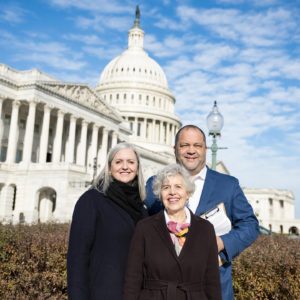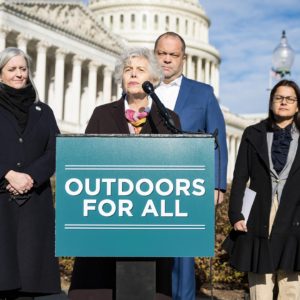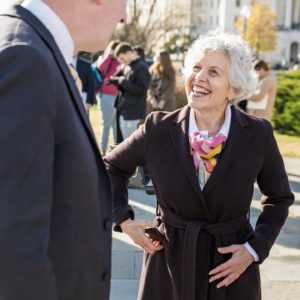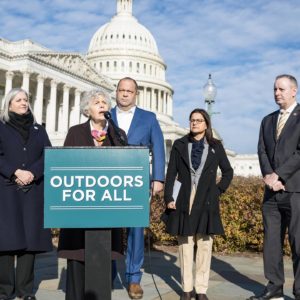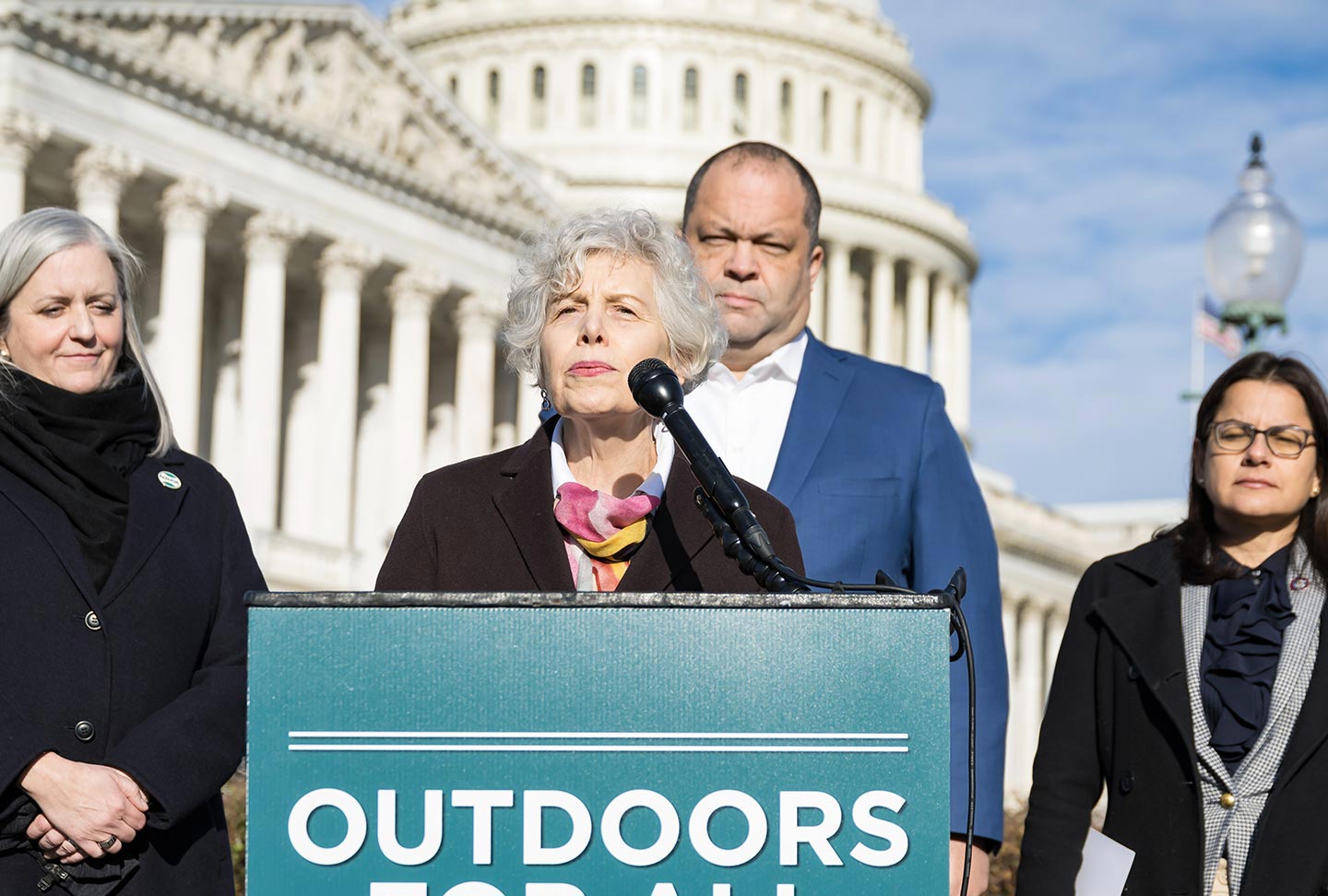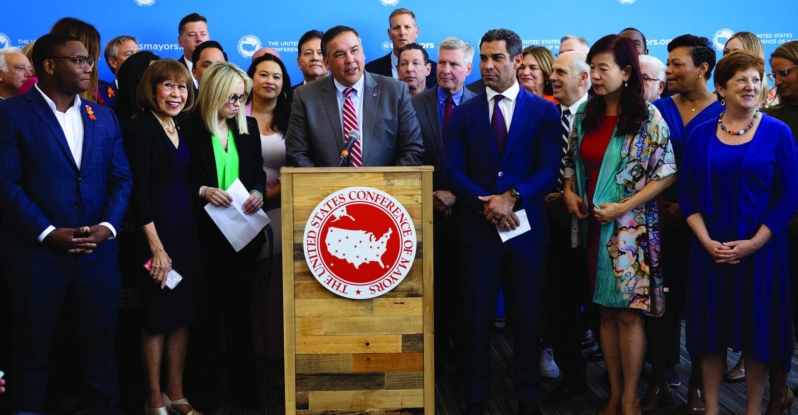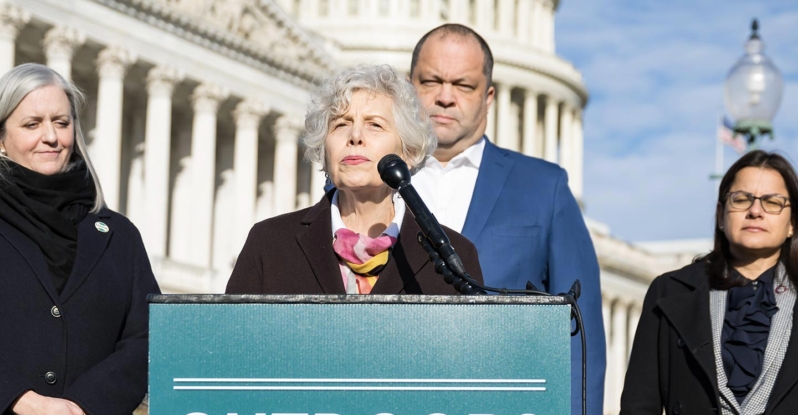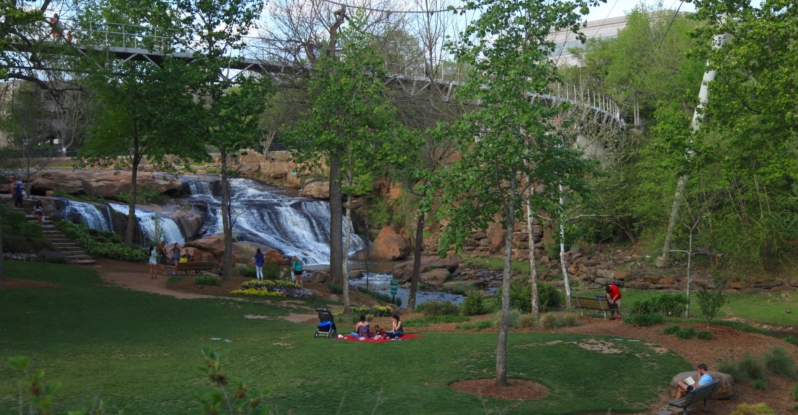Yesterday, City Parks Alliance Executive Director Catherine Nagel joined Representative Nanette Diaz Barragán (D-Calif.-44), Representative Brian Fitzpatrick (R-Penn.-1), National Parks Recreation Association (NRPA) CEO Kristine Stratton, and Sierra Club CEO Ben Jealous at a rally on the steps of the United States Capitol building in support of the Outdoors for All Act.
At the rally, Catherine shared the following remarks with the media:
“Thank you again, Representatives Barragán and Fitzpatrick, for your leadership and work over the years on the Outdoors for All Act. And thank you to NRPA and Kristine for bringing us together today.
I’m Catherine Nagel, Executive Director of City Parks Alliance, the only nationwide nonprofit solely dedicated to urban parks. Our 400 member organizations include public and non-profit urban park and recreation agencies, city planning and design firms, community-based advocacy groups, corporations, and funders. We also lead the Mayors for Parks Coalition, comprised of mayors from large and small cities across the country who advocate for robust federal investment in our nation’s city parks.
What we hear from all these leaders and what I’ve learned from more than two decades of working in this field is how absolutely critical parks are for people of all ages to live more powerfully. Parks are safe places for kids to play and learn, where teens build confidence and life skills, families celebrate their strengths, and seniors maintain social connections.
Parks make our cities work. They are civic infrastructure as important as bridges and roads and water systems, with a high return on public investment because they do so much to help cities meet our greatest challenges, from environmental resiliency to community vitality. We cannot have thriving, sustainable cities without high-quality parks.
Their health benefits—both physical and mental—have been well documented and were proven so during the pandemic. Parks became a lifeline for tens of millions of urban dwellers who live without access to private backyards. They saved us, and served as a place where neighbors could gather for mutual support and healing. But not everyone had access to them.
Parks also make cities more economically vibrant by contributing to a high quality of life — attracting businesses and creating jobs – all while saving billions in traditional infrastructure and public health costs.
Despite the enormous benefits, public funding for urban parks is limited and not keeping up with demand, especially in distressed communities where their many benefits are most needed.
The Outdoors for All Act would codify the Outdoor Recreation Legacy Partnership Program – or ORLP – and turn it into permanent law — to provide this much needed support for parks into the future.
Established in 2014, the ORLP focuses on providing outdoor recreation in disadvantaged communities within urban areas. The program funds land acquisition, new park development, and the renovation of existing parks. It had a modest start but has now grown from $3 million to over $100 million dollars annually and become an important funding source for cities.
Since the program’s creation, 96 projects have been awarded grants, with transformational results. These projects include a 25-acre park developed on a former brownfield in a low-income neighborhood in Portland, Oregon that not only added play spaces and gardens, but provided jobs to nearby residents as the park was built; one grant helped repurpose a former industrial site in Madison, Wisconsin into a six-acre skate park where local youth now have a place for healthy activity; and another created a 4.5-acre park on vacant land in a dense and underserved residential neighborhood in Denver, Colorado where children can now learn about and be immersed in nature, close to home.
But parks are not sustainable without federal investment, leveraged with state and local funding sources, both public and private.
As our cities grapple with a changing climate and post-pandemic well-being challenges and as we work to rectify historic inequities, now is the time to pass the Outdoors for All Act. Everyone, no matter where they live, should have access to a safe, quality park.
Thank you.”
To learn more,
- Read City Parks Alliance’s report on the Outdoor Recreation Legacy Partnership program
- Read the full text of the Outdoors for All Act at: congress.gov/118/bills/hr1065/BILLS-118hr1065ih.pdf
- Watch City Parks Alliance’s recent ORLP technical assistance webinar for communities interested in applying for grant funding.
